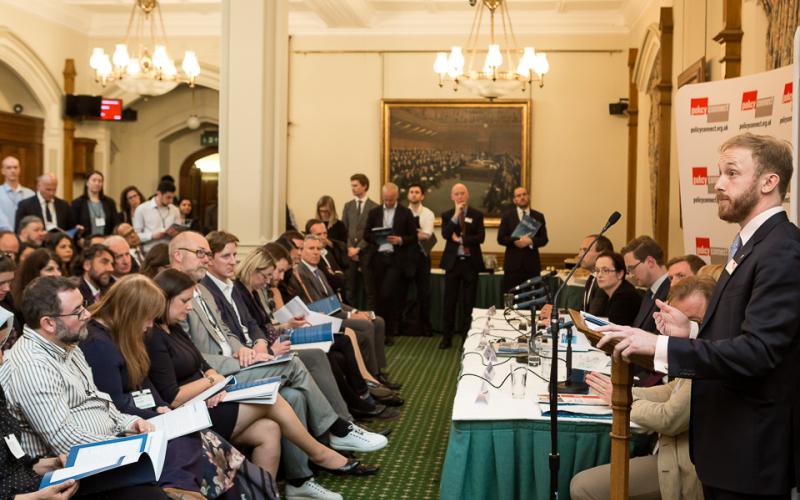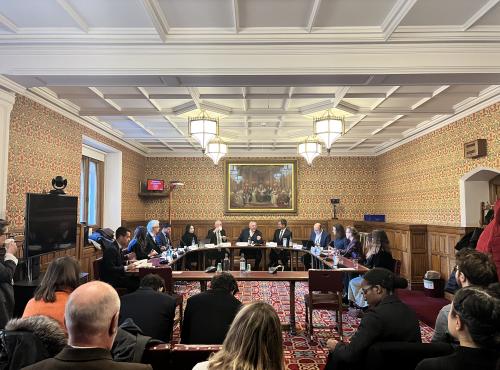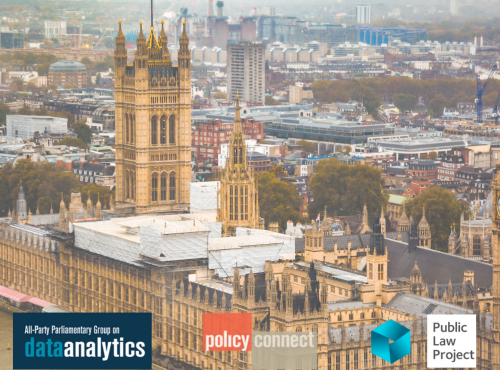Trust, Transparency, Tech: Report Launch
The All Party Parliamentary Data Analytics Group (APGDA) and Policy Connect was delighted to launch its landmark report, Trust, Transparency, Tech on data and technology ethics in the House of Commons on Tuesday 21st May, 2019. The event brought together over a hundred people from across academia, industry, and government to hear the case for a new settlement between the public and the technology they use.
The report comes after over six months of evidence gathering and submissions focused on the need to ensure public confidence in the organisations that provide services such as the NHS and police, as well as private sector partners paid for by the tax-payer, take decisions using personal data collected from and about them.
This means there needs to be a public services ‘licence to operate’: transparent, standardised ethics rules for public service providers in universities, police, health service and transport to build public confidence.
The audience heard from the inquiry Co-Chairs, Lee Rowley MP and Darren Jones MP, who spoke about the need to build cross-party consensus and parliamentary scrutiny for the newly established Centre for Data Ethics and Innovation. Mr Jones expressed optimism that Britain has an opportunity to set high standards and promote regulatory best practice around the world. Mr Rowley added that issues of trust and ethics will become increasingly pivotal for society as data and AI find their way into all facets of people’s lives.
Jack Tindale, Manager for Design and Innovation Policy at Policy Connect, outlined the methodology and recommendations of the report, which came out of the need to observe the practical applications of data-driven technologies in everyday life.
Marina Jirotka, Professor of Human Centred Computing at the University of Oxford and Academic Advisor to the Inquiry, then spoke on the wider need for the so-called ‘ethical black box’ in technologies that rely on data and machine learning to come to decisions outside direct human control. Professor Jirotka also highlighted the work of the APGDA to further discussion between parliamentarians and the public, and to push for better engagement in these issues between government and industry.
Comments were also made from Paul Garel-Jones of Deloitte, and Phil Richards of Jisc, who supported the work of the inquiry and the publication of the report.
The speakers were joined by Maggie McGhee, Executive Director for Governance at ACCA, who participated in a panel discussion and questions from the audience. Contributions from the floor covered a range of issues. Including the role of data in other areas of public policy, the ethical challenges being considered by the Centre for Data Ethics and Innovation in areas such as bias in algorithms, and how legislation and regulation can accommodate technological developments.
Jonathan Shaw, Chief Executive of Policy Connect, concluded the event by discussing the next steps of the inquiry. Over the next twelve months, the APGDA will hold a number of follow-up roundtables and workshops to discuss how to implement the recommendations within the report, ensuring that the UK becomes a world leader for innovation in the rapidly developing area of data ethics.
For more information, please contact jack.tindale [at] policyconnect.org.uk (subject: RE%3A%20Trust%2C%20Transparency%20and%20Tech) (Jack Tindale).






